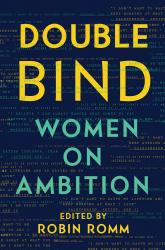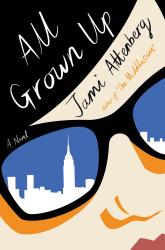
 I once asked my mother, a well-educated, exceedingly competent woman, why she served as someone’s assistant for the majority of her professional life, yet always took a leadership role in volunteer organizations (president of the PTA and director of nearly every church committee on which she’s ever served, for example). Her response was unequivocal: “Your grandmother always told me that I would never be anything other than a secretary.” Mothers—“They fuck you up,” Philip Larkin wrote. “They may not mean to, but they do.”
I once asked my mother, a well-educated, exceedingly competent woman, why she served as someone’s assistant for the majority of her professional life, yet always took a leadership role in volunteer organizations (president of the PTA and director of nearly every church committee on which she’s ever served, for example). Her response was unequivocal: “Your grandmother always told me that I would never be anything other than a secretary.” Mothers—“They fuck you up,” Philip Larkin wrote. “They may not mean to, but they do.”
Mothers loom large in Double Bind: Women on Ambition, Robin Romm’s new anthology of women’s writing about the complications of gender and aspiration. More than 20 percent of the essays in the collection begin with some variation of “my mother”; the last begins, “Dear Mom.” Nearly all the others include anecdotes about mothers or mothering. The book is, in fact, dedicated to the editor’s “grandmothers, mother, and daughter.” In this collection, at least, ambition is rarely divorced from the matrilineal narrative.
For novelist and short-story writer Pam Houston’s mother, ambition ended with marriage and, not long after, Houston’s birth, a fact the poor girl was never allowed to forget. “‘I gave up everything I loved for you,’ my mother would say to me almost daily, to get me to clean my room or part my hair on the side or wear my retainer. And I would want only to find a way to give it all back, to restore her satisfying working life before being saddled with the burden of me.” Internalizing this guilt, Houston becomes a workaholic, barely sleeping, never turning down work: “I work hard, therefore, I am.”
Romm’s own mother had an illegal abortion at the age of eighteen. A civil-rights lawyer who was “passionate about a woman’s right to choose, about a woman having a real career and making an impact on the world,” she impressed these values upon her daughter, who delayed motherhood only to spend five years trying to get pregnant before succeeding, at forty. For Romm, achievement meant “the perpetual double bind of the gender, success paired eternally with scrutiny and retreat.”
In what is perhaps the most conservative essay of the bunch, political-science professor Elizabeth Corey speaks to the concerns of her female students at Baylor University when she says, “Flexible hours, parental leave, working from home, and other policy changes are necessary for women to flourish as professionals and mothers. But the core of the problem is more spiritual and psychological than political or social.” Corey acknowledges Sheryl Sandberg and her kind—Anne-Marie Slaughter, Debora Spar, those who “confront the difficulties of having children and careers without simply saying: ‘work harder’ or ‘stop working’”—but ultimately finds the motherhood/career conundrum unresolvable. “There seems to be something in the nature of most women,” she writes, “that wants not only to be sure that children are cared for but also to do the caring themselves.” And so, “Shouldn’t women, and especially those who are financially stable enough to do so, focus predominantly on family and children?” This is a crisis of the soul, according to Corey, and it is only through “the setting aside of goals” that women will approach happiness.
In compiling Double Bind, Romm sought to acquire “tales from the trenches.” But the thing about trenches is that they aren’t particularly clean. They’re narrow and, by definition, associated with being on the defensive. This is not always a bad thing. Having gathered these essays in direct opposition to such business tomes as Sandberg’s Lean In, Romm offers space for writers like Ayana Mathis, who grew up black in the eighties, “raised on a steady diet of images that showed us as unworthy, ugly, peripheral”:
I and mine are not lean-in women. Mine is a long and illustrious heritage of elegant survivalists and creative realists. We made our way without a road map, or even a road, as is the case for those of us who were, by virtue of race and class and gender, barred from the paths to success. We have dreams aplenty, some realized and some not, but the manifestation of our ambitions is not a given. It isn’t even a given that we will recognize our right to have them.
Many of Romm’s contributors invoke Lean In (almost as many as reference motherhood). In a double whammy, Allison Barrett Carter’s essay, “Leaning In, Leaning Out,” addresses stay-at-home motherhood and the shifting personal expectations of ambition. Yael Chatav Schonbrun finds that “the concepts of ‘ambitious’ and ‘part-time’” are “a schematic mismatch” when she attempts to slow down her academic career after the birth of her first child.
There is, in fact, an awful lot of striving in the book, much of it in academia (along with some reflexive defensive posturing). Roxane Gay, however, in “The Price of Black Ambition” (originally published in this magazine), talks about “the burden” of ambition and whether or not she is “worthy” of the moment she’s having, a result of years of hard work and determination coupled with talent and genius.
Romm’s contributors grapple with the definition of ambition. For many of them, to be ambitious seems to be going after what you want, or what you desire. Erika L. Sánchez learned to define this in the negative, by watching her immigrant mother struggle daily: “Everyone in my family was incredibly hardworking, and I admire them for their resilience and generosity, but nobody, nobody, had the kind of life I wanted, particularly the women.” And yet in Lan Samantha Chang’s household growing up,
There were no complicated feelings, and no double messages, about ambition. Hesitation and ambivalence, it seems, are of concern only to people who hold the hope of meeting some ideal of American womanhood or possess the approval of authority, privilege. In other words, people who have something to lose. We could no more achieve the ideal of American womanhood through our choices about careers and families than we could the ideal of American beauty. In the seventies, the ideal American woman was the frost-maned Farrah Fawcett. One look in the mirror at our black hair, brown skin, and slanted eyes freed us from the necessity, and the possibility, of striving in her direction. Our ambition was unencumbered by reluctance.
Chang’s parents came to the US from China (her mother after high school, the year her own father died; her father alone, at eighteen, never to see his parents again). They eventually met and married in New York and later raised four midwestern American girls for whom independence was assumed (and ultimately achieved).
The word “ambition” concludes the second sentence of Jami Attenberg’s new novel All Grown Up: “For most people, moving to New York City is a gesture of ambition.” Not so for Andrea Bern, Attenberg’s protagonist. This is a return home and it “signifies failure,” a word that appears no fewer than five times in this slim novel. Failure, the opposite of ambition’s twin: success.
Throughout the novel, Andrea hates her job in corporate America—“my meaningless fucking job”—and she doesn’t always know what she wants, but she doesn’t “feel any pressure to be anything that I’m not.” She sleeps with men who remind her of her father (though she’d rather not talk about it, to her mother or her therapist). She does not want a child or a husband. Not unlike Romm’s contributors, Andrea’s relationship with her mother informs her choices as an adult. She tells her therapist:
I grew up in a household where I watched my mother be oppressed first by my junkie father and then secondly by every loser stoner who walked through the door even though she was supposedly this strong independent smart woman who should have survived on her own, but felt like she was supposed to ask for help. And maybe because I didn’t have any positive relationship models in my life I don’t feel inspired to make concessions to keep this one, because what’s the point, men will suck you dry anyway?
Andrea’s story is told through vignettes that move the reader backward and forward in time, in a nonlinear fashion, from present day to 1992 or 2003 or 1988 or 2002. Chapters are named according to the events or secondary characters they describe. The opening vignette, narrated in second person in the voice of Andrea’s apartment, asks both “What if this is enough?” and “What next?” These questions—in competition with each other—animate All Grown Up and, indeed, are at the heart of Double Bind.
A failed artist, Andrea finally admits to herself near the end of the book, “I want someone to see me. What if I start making art again? What if I just did that? That is the thing I love, that is the thing I miss the most.”
Pam Houston would certainly approve. “Ambition’s greatest reward,” she says, having made a life writing, traveling, living surrounded by animals in the American West, and teaching—all things she identified early on as driving forces—“is to do the thing you love most, and do it…well enough to satisfy yourself.”






